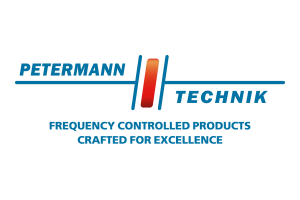Study Shows Catch-up Potential
Very few Companies are Ready for AI
Artificial intelligence can improve the future viability of companies now, at the time of disruption by the Corona 19 pandemic - this is the conclusion of a study commissioned by Avanade. But currently, only a very small proportion of the companies surveyed are fully AI-ready.
Uncertainties about the impact of AI on humans have diminished significantly in recent years. However, most companies are still struggling with how to implement AI to achieve meaningful and sustainable business outcomes, according to a study commissioned by Avanade Germany, a provider of digital services, business and cloud solutions, and design-led applications.
The survey for the study was conducted over a period from 2018 to 2020 by market researcher Vanson Bourne. It surveyed 1,700 decision makers from HR, operations, IT, marketing, service and support, and other leadership positions, including board members. The sample included companies from manufacturing & production, banking & insurance, consumer goods and retail. Companies surveyed were from the U.S., as well as Canada, the U.K., Ireland, France, Germany, the Netherlands, Italy, Spain, Japan, Singapore, Australia and the so-called Nordics.
How to tackle AI - companies still wrestling
Avanade's research found that while most companies recognize the potential for AI to positively impact their business; many executives still struggle to successfully implement the technology.
When asked about AI strategies, 95 percent of all respondents (Germany: also 95 percent) said they believe AI is critical to success. But just under a third (32 percent; Germany: 27 percent) cited building an AI strategy as one of the top three hurdles. A similar number (35 percent; Germany: 34 percent) relied on external support to develop their strategy.
In terms of talent and culture, 80 percent (Germany: 76 percent) of respondents agree that corporate culture and change are the critical factors for long-term AI success. However, 54 percent (Germany: 39 percent) have difficulty recruiting AI talent and/or changing their culture. At twelve percent (international: seven percent), there is also a greater expectation in Germany that AI will cost jobs.
On the aspect of digital ethics, 96 percent of respondents worldwide (Germany: 91 percent) believe that ensuring digital, rule-based ethics is necessary to implement AI. 66 percent (Germany: 47 percent) are in the process of introducing corresponding guidelines.
In terms of the key area of technology and processes interviewed, 61 percent of global respondents (Germany: 64 percent) said they have taken their first steps with automation and advanced analytics, with 35 percent of respondents (Germany: 31 percent) using computer vision and 34 percent (Germany: 34 percent) using virtual agents.
And on the data sticking point, 65 percent of companies worldwide (Germany: 82 percent) said their data quality needs to be optimized to meet data management and governance requirements.
According to Dr. Robert Laube, an executive at Avanade Germany who is involved with various AI projects, it is imperative that companies get ready to deploy for AI. After all, if AI can be fully integrated, the combination of increased productivity, improved process efficiency and lower operating costs can deliver a return of three euros for every euro invested.





